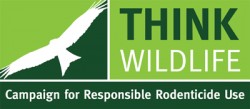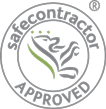Moths
Moth facts
- Moths belong to the order Lepidoptera.
- Most species in the UK are totally harmless. However, a few are considered pests because of the damage their larvae (caterpillars) can do to materials, textiles and stored products.
- Adult moths are not responsible for the damage!
- Carpet moths lay their eggs in natural materials, and their larvae eat its protein. This protein is called keratin.
- Materials targeted by carpet moths include wool, fur, cotton, silk and leather.
- They can also live in birds’ nests, feeding on feathers.
- Carpet moths are small and shimmery brown in appearance. They will quite often crawl rather than fly.
- They can enter your home through windows, cracks and crevices. They prefer dark, quiet places.</li
What you can do
- Poor housekeeping can allow moth infestations to build.
- Move large pieces of furniture, carpet runners and wall hangings frequently and vacuum underneath using a cleaner with a rotating brush head.
- Regularly check clothes with natural fibres for signs of carpet moths.
- The larvae are small and white and chew at the fibres in distinctive straight lines or holes.
- Check for disused birds’ nests.
- Regularly disturb the dark, quiet corners of your home.
- Poor housekeeping can allow moth infestations to build.
If you have a moth infestation, we will...
- Identify the source of the infestation – this will usually be a forgotten cashmere jumper or wool carpet underneath a heavy dresser!
- Thoroughly clean using a rotating head vacuum cleaner (you may wish to do this yourself), moving all the furniture and turning over the entire property.
- Apply a residual insecticide as appropriate.
- Advise you on how to wash your clothes and other natural materials.
- Provide you with moth traps to monitor future activity.
ENQUIRE NOW
ENQUIRE NOW







